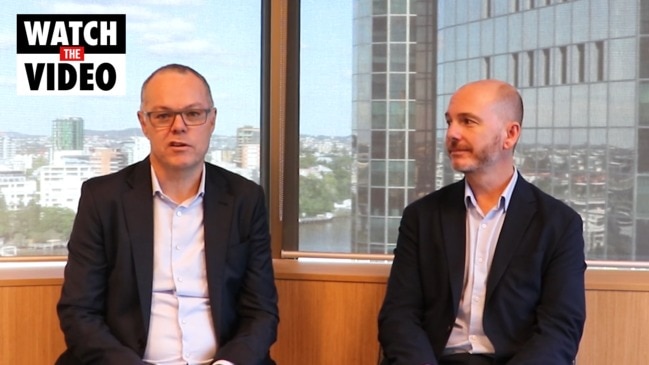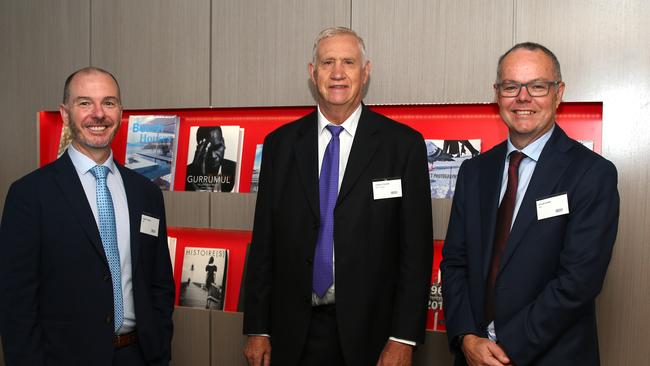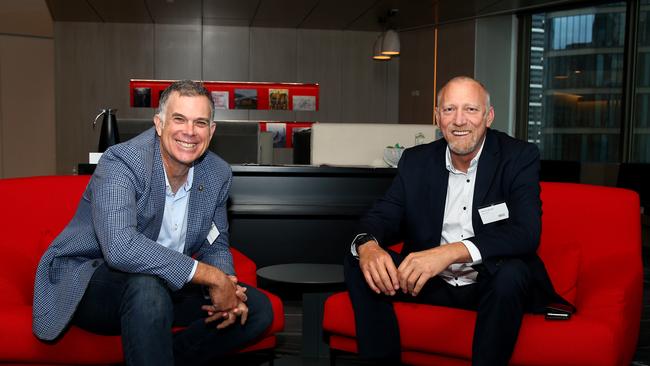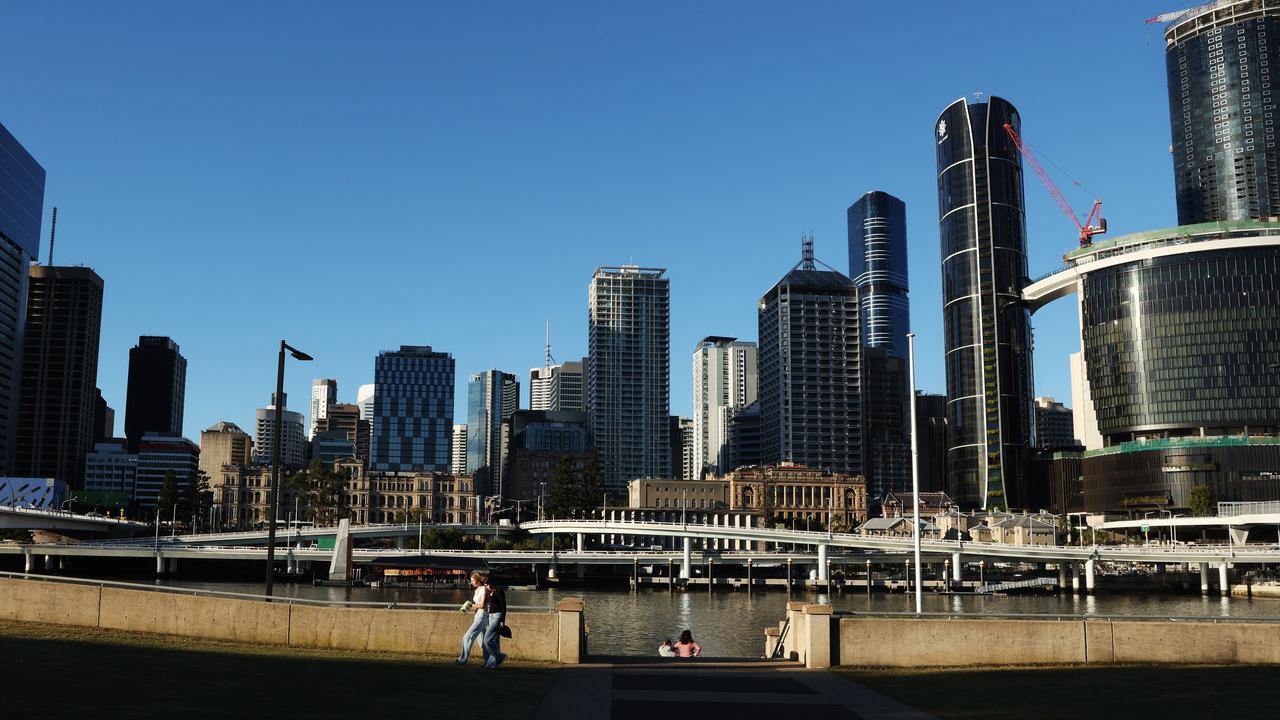Australian manufacturers seek fair go a year on from COVID pivot
Tales of instant millionaires cashing in on increased demands due to COVID continue to do the rounds, but was the reality just as rosy for these Queensland companies?

Business
Don't miss out on the headlines from Business. Followed categories will be added to My News.
A Brisbane family company that pivoted to making personal protection equipment (PPE) during COVID lost out to a Chinese company in a big Federal Government contract, underscoring continuing challenges for the local manufacturing sector.
EGR, a 46-year-old manufacturer of car accessories, was expected to be producing 200,000 face shields for frontline medical workers and retail staff as it positioned itself as a manufacturer of vital personal protection equipment (PPE).
But the pivot failed to gain any traction with the Federal Government, which instead went with a Chinese supplier of face masks instead in a big contract for the Health Department.
EGR executive Robert de Paola told a recent manufacturing boardroom lunch, hosted by BDO and The Courier-Mail, that the company was disappointed its investment in PPE capacity, which sought to help the nation protect itself from COVID, was not rewarded.
“A Brisbane manufacturer that employs 800 people and that was well set up to produce the masks missed out to a Chinese company,” Mr de Paola said.
“It shows what can happen when politicians get involved in business decisions.”
While manufacturers at the lunch praised initiatives such as the Federal Government’s $1.3 billion Modern Manufacturing Initiative, they said there was a lack of understanding by politicians generally of the challenges, including rising costs, of manufacturing in Australia.
Perfect Potion general manager Janet Shackleton said the company, which manufactures a range of skin-care products, was called up several times by panicked government officials during the early stages of the pandemic wanting large quantities of hand sanitiser.

“We stopped all other production to make it, but the initial interest from government departments never translated into solid orders,” she said.
“There is a lack of understanding how challenging manufacturing is in Australia.”
Ms Shackleton said COVID-19 had thrown up other problems such as surging freight costs and supply chain issues due to the shutdown of global aviation.
“Shipping costs have increased because there have been fewer planes,” she said.
“We now have to send our products to Sydney via road and they are then flown to Narita rather than Osaka (in Japan), adding four days to the trip and making it about eight fold more expensive.”
A Federal Health Department spokesperson said that at the time it received the proposed offer from the EGR Group, a sufficient volume of face shields had already been contracted.
The spokesperson said most PPE was procured very early in the pandemic and this included a substantive amount of supplies that were manufactured in Australia.
LONG DELAYS
Adina Watches general manager Grant Menzies said the family-owned watchmaker had faced long delays in the supply of Swiss-made movements for some of its popular time pieces.
“We have had to top up on stock levels in order to survive,” said Mr Menzies. “An order we put in with a Swiss supplier last June just arrived the other day.”
BDO partner Dylan Byrne said it was great to see the commitment of our local manufacturers to think globally, both in terms of seeking out export markets, but also in keeping abreast of technological changes and best practices.
“It is not uncommon for our local manufacturers to be in constant communication with global equipment suppliers,” he said. “Ensuring manufacturing processes are lean and modern is critical in offsetting Australia’s geographical isolation and higher labour costs.”
Trisco Foods chief executive Mike Tristram said despite challenges for manufacturers before and after COVID, there was now a real effort and intent behind governments to support manufacturing businesses.
“There have been a lot of grants on offer in both the research, innovation, and capital expenditure space at state and federal level,” he said. “I have never seen the sort of interest in us as a sector or individually before.”
Mr Tristram said there were practical ways governments could help manufacturers including expansion of accelerated depreciation on assets similar to that introduced in the US.
“That really helped with investment in new equipment,” said Mr Tristram.
He said efforts also should be made towards keeping energy and other utility costs down and a reduction in the inefficient taxes such as payroll and stamp duty.

BDO executive director Kane Stavens said he was buoyed by the ongoing resilience of the Australian manufacturing sector.
“Local companies have faced significant barriers to progress including our distance from the rest of the world,” he said.
“It’s impressive to hear from some of these organisations how the Aussie pride remains in this industry, and I’m excited for the outlook in the near future as the digital transformation continues.”
TEAM AUSTRALIA
Frosty Boy managing director Dirk Pretorius said COVID-19 had changed consumer behaviour with a greater focus on healthy products, giving Australian food manufacturers a market advantage.
“Brand Australia is now very strong because people look at how we have handled COVID and compare that to other countries,” said Mr Pretorius, whose company exports soft serve icecream and frozen yoghurt products around the world. “Manufacturers now need to capitalise on that brand strength.”
Packer Leather chairman Lindsay Packer said that while government grants could help some manufacturers they were narrowly-based and did not apply to all sectors.
Mr Packer said manufacturers in some industries, including leather makers, also were facing “activists” whose calls to boycott products damaged business.
Mr Packer, whose 130-year-old company makes the leather for the iconic Kookaburra cricket ball, said there was now a movement to promote so-called “vegan leather.”
“In the US, they are also trying to ban kangaroo leather,” said Mr Packer.
“The campaign for ‘vegan leather is disturbing because its not leather, in fact it’s plastic.”
Amazonia Group chief executive Yohann Azlee said it was important Australian manufacturers co-operated with each other rather than competed.
“In countries like Germany there is a real culture of manufacturers relying on each other and helping each other.”
This was particularly supportive if manufacturers used local suppliers to make their products.
Adina Watches’ Mr Menzies agreed, nothing his company had recently teamed up with iconic Queensland fishing reel company Alvey to produce a co-branded watch.
More Coverage





